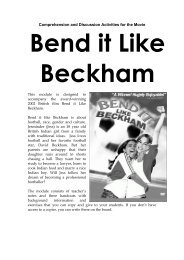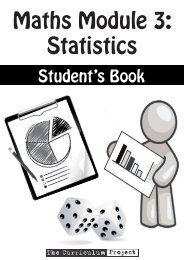Teacher's Guide - The Curriculum Project
Teacher's Guide - The Curriculum Project
Teacher's Guide - The Curriculum Project
- No tags were found...
Create successful ePaper yourself
Turn your PDF publications into a flip-book with our unique Google optimized e-Paper software.
Economic Globalisation (cont’d)Ask students to read the paragraph ‘Economic globalisation and land rights’.Ask them to write down any words that they don’t know. Elicit these wordsin turn. Ask if they, or other students can guess the meaning (give them someclues if necessary). If not, give them a dictionary to look it up and tell theclass, or tell them yourself.Freeport Mine, West Papua, Irian JayaAsk students to read the text. Give them about 5-10 minutes. Ask them towrite down any words that they don’t know. Elicit these words in turn. Ask ifthey, or other students can guess the meaning (give them some clues ifnecessary). If not, give them a dictionary to look it up and tell the class, or tellthem yourself.Pairwork1. True or false. Put the students into pairs. Ask them to decide whether thefollowing statements are true of false. If they are false, they must provide acorrect version of the statement.1. <strong>The</strong> Amungme’s land rights have been respected by the Indonesian government.Answer: False. <strong>The</strong> Amungme’s land rights have been ignored.2. <strong>The</strong> construction of Freeport mine involved cutting off the head of the Amungme’ssacred mother.Answer: True3. <strong>The</strong> mine hasn’t caused any environmental destruction in the area.Answer: False. <strong>The</strong> mine has caused destruction of mangrove and rainforests, has pollutedrivers and coral reefs, and caused erosion and flooding.4. <strong>The</strong> landowners’ trust agreement has solved the dispute between the Amungme andFreeport McMoran.Answer: False. <strong>The</strong> rules and value of the agreement are still not agreed and violentdemonstration continue.Discussion2. What about land rights in Burma? What happens when the government,or a big company, wants to use natural resources in a region?When Ne Win came to power in 1962 he soon introduced a system of nationalisation. This meanttaking private property and making it state property. Private businesses were forced to give theirproperty to the state. Today, land and property confiscation by government authorities is a commonlydocumented problem in many parts of Burma. <strong>The</strong> military regime claims ownership of all thecountry’s natural resources, including oil and gas, minerals, teak and other woods, precious stones,and rivers. Companies run by the military manage the exploitation of the country’s natural resourcesfor the profit of the regime, often working with foreign companies. <strong>The</strong>y also give permission toceasefire groups to exploit resources in return for their loyalty. In all cases, the rights of local peopleare usually ignored. In many parts of the country, people live in fear of having their land or propertytaken by the military, or other people in the government. Recently the United Nations Economicand Social Commission for Asia and the Pacific (UNESCAP) was criticised in a KHRG report forsupporting the development of the Asian Highway in Burma. This project has involved forcedlabour and land confiscation in Thaton and Pa’an districts in Eastern Burma.<strong>The</strong> <strong>Curriculum</strong> <strong>Project</strong> ECONOMICS: an introduction - Teacher’s <strong>Guide</strong>73



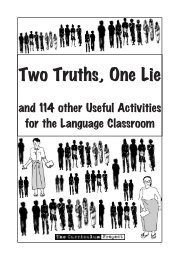
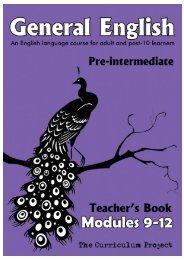
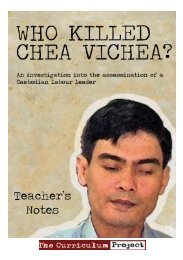
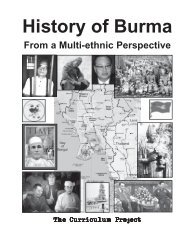
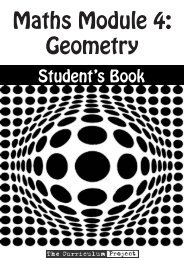

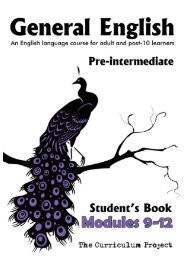

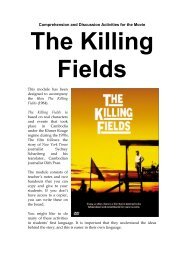
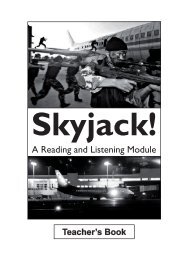
![[Eng] Nov 2012 DRAFT - The Curriculum Project](https://img.yumpu.com/45590859/1/184x260/eng-nov-2012-draft-the-curriculum-project.jpg?quality=85)
